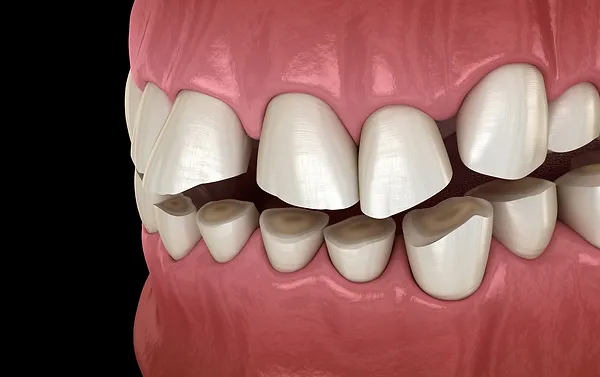Call Us Today : (757) 596-6850
Bruxism

The clenching and grinding accompanying bruxism are symptomatic of a malfunctioning chewing reflex. As a result, symptoms include headaches, pain, earaches and worn teeth.
Reasons For The Treatment Of Bruxism
Here are some of the main reasons that bruxism should be promptly treated:
Gum recession and tooth loss – Bruxism is one of the leading causes of gum recession and tooth loss. It damages the soft tissue directly and leads to loose teeth and deep pockets, where bacteria can colonize and destroy the supporting bone.
Occlusal trauma – The abnormal wear patterns on the occlusal (chewing) surfaces can lead to fractures in the teeth, which may require restorative treatment.
Arthritis – In severe and chronic cases, bruxing can eventually lead to painful arthritis in the temporomandibular (TMJ) joints (the joints that allow the jaw to open smoothly).
Myofascial pain – The grinding associated with bruxism can eventually shorten and blunt the teeth. This can lead to debilitating headaches and muscle pain in the myofascial region.
Bruxism Treatment Options in Newport News, VA
Here are some common ways how bruxism is managed:
Mouthguards – An acrylic mouthguard can be designed from tooth impressions to minimize the abrasive action of tooth surfaces during normal sleep. Mouthguards should be worn on a long-term basis to help stabilize the occlusion and prevent damage to teeth and to the temporomandibular joint.
Alternative treatments – medications, physical therapy, Botox, relaxation exercises, stress management education.
Dental Rehabilitation - Including crowns, gingival grafts, and crown lengthening to restore function and esthetics.
If you have questions or concerns about bruxism, please contact our Newport News, VA dental office today!

If you have questions or concerns about bruxism, please contact our Newport News, VA dental office today!
